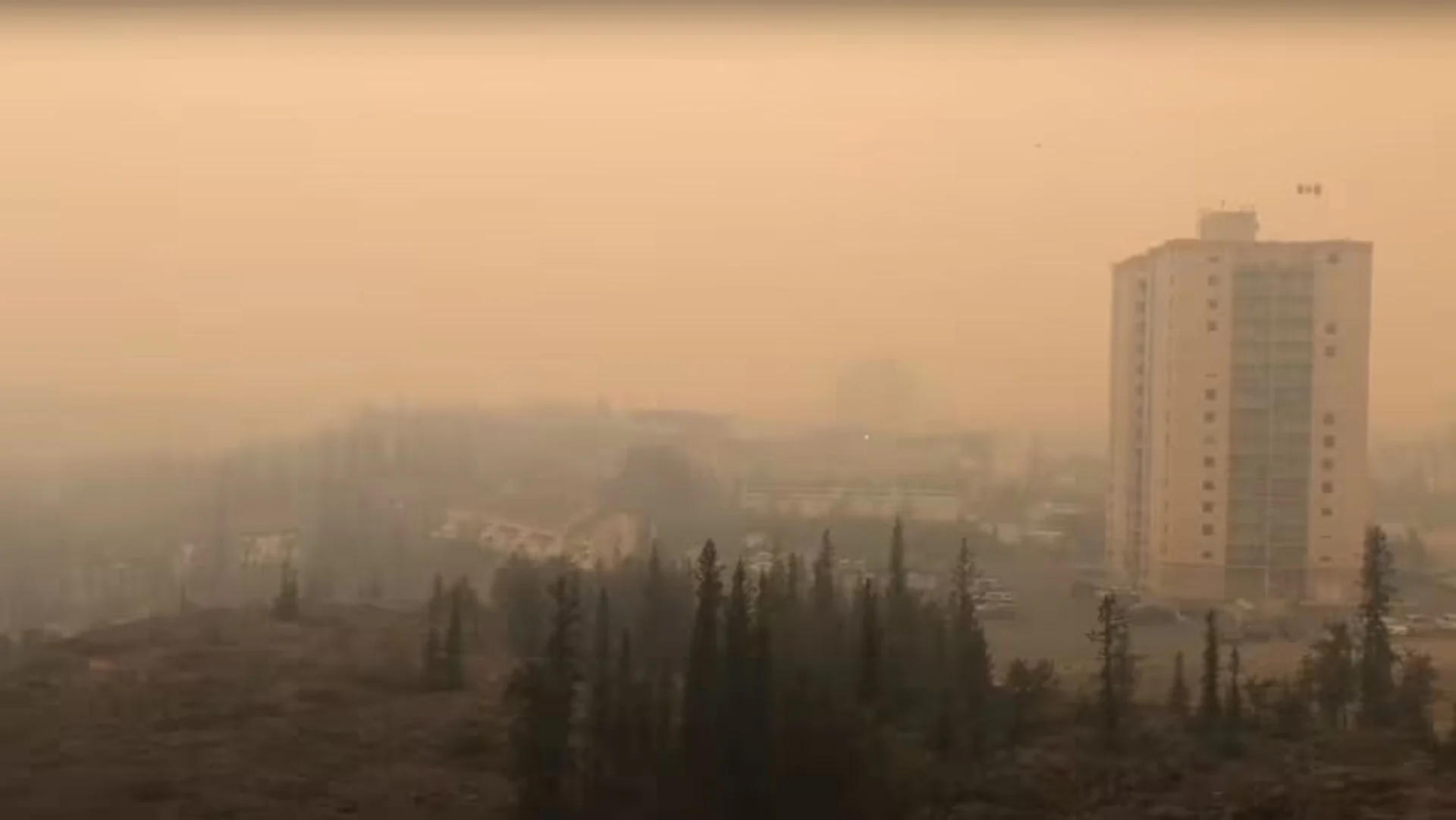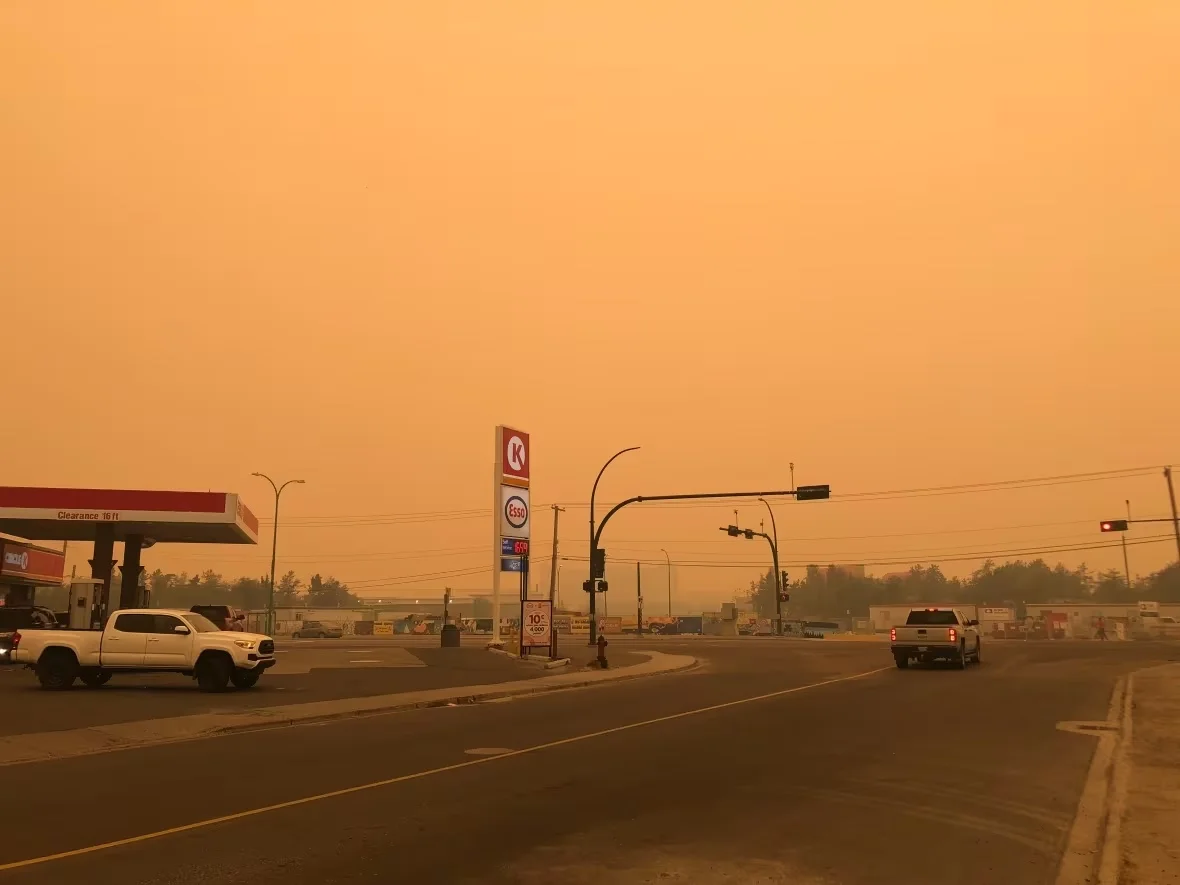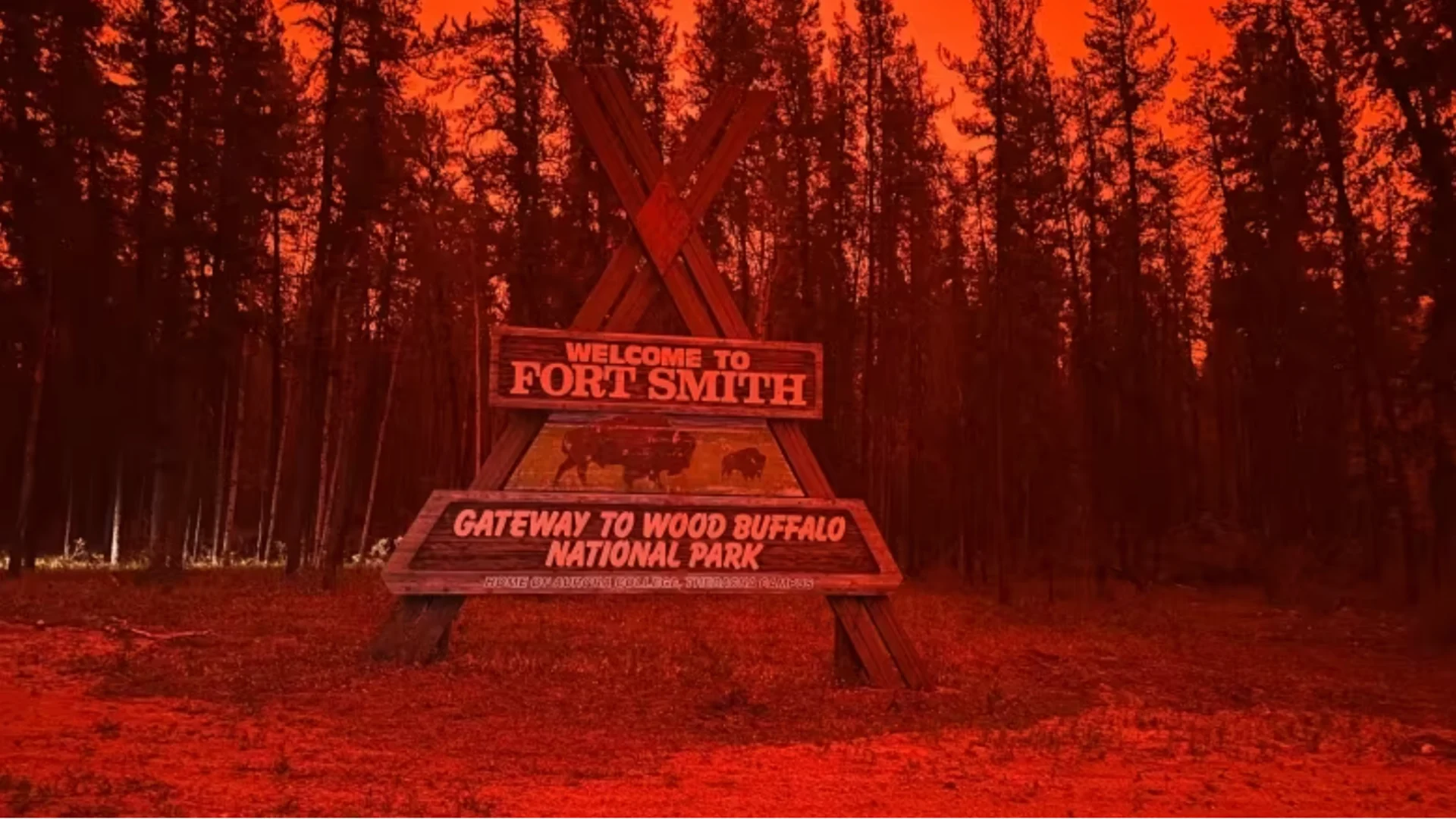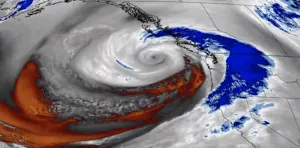
Wildfire breach of control lines west of Yellowknife now 'significant'
Visit The Weather Network's wildfire hub to keep up with the latest on the unprecedented wildfire season across Canada.
Fire officials in the N.W.T. are expecting "serious challenges" Monday battling the wildfires near Yellowknife, with strong winds expected to push the fires to the south and east. Communities in the region should expect smoke and ash Monday.
After the fire burning between Behchokǫ̀ and Yellowknife breached control lines to the southwest toward Boundary Creek, N.W.T. Fire said Monday at 11 a.m. that that breach is "significant" and their top priority is to contain it.
SEE ALSO: After Maui wildfires kill 96, search for the missing continues
The area of Highway 3 nearest that breach has been ordered to evacuate from kilometre 284 to 306. Kilometres 307 to 320 are on an evacuation alert.
"Overnight, breaches on the establishing line to the east moved further east — reaching within 3-3.5 kilometres from Boundary Creek on both the south and north side of Highway 3 driven by extreme winds," reads the update from officials on Monday.
The Behchokǫ̀/Yellowknife fire was mapped at 136,109 hectares on Sunday. It is about 30 kilometres from Yellowknife at the nearest point.
Yellowknife, N'Dilo and Dettah are not currently at threat, officials say, but they are urging everyone to "be ready should the situation change."
WATCH: Huge wildfire smoke plumes blanket sky in Northwest Territories
Military aid en route
In a press release Monday afternoon, the N.W.T. government said 124 soldiers will be joining fire crews to help mop up fires, freeing up other firefighters to continue the battle against significant blazes. The Canadian Armed Forces are also expected to deploy a helicopter and a twin otter to help.
Some of that support will be available to Yellowknife as of Wednesday, said city manager Sheila Bassi-Kellett in an update to council Monday afternoon, which will help with cutting fire breaks.
Right now, the city continues to work on establishing fuel breaks and sprinkler systems. Portions of Deh Cho Boulevard will also be closed for firesmarting work, the city said on Monday.
"The City wants to stress that our community is not currently at threat. These measures are precautionary, and more information on the situation will become available as it develops," reads a news release on Monday.
"The City urges residents to remain vigilant and keep fire safety a priority."

Smoky weather that rolled into Yellowknife on Sunday had numerous residents filling vehicles with gas. But N.W.T. Fire says the smoke is not the result of fires moving closer to the city. (Luke Carroll/CBC)
Bassi-Kellett said she met with territorial fire officials Monday morning to discuss what's happening with the Behchoko-Yellowknife fire.
She said if the fire breaches Boundary Creek, there could be an evacuation order for the rest of Highway 3 up to Yellowknife's boundary.
"Weather conditions determine a lot ... and certainly the winds yesterday were really quite frightening," she said. "The situation is fluid based on [N.W.T. Fire's] latest update."
In the meantime, the city has been working to clear brush and mulch areas that are at greater risk of catching fire, should something happen.
She said the city's emergency team has been meeting every day since July 25 and is focused on proactive wildfire protections now.
She said right now, contractors are helping the city do firesmarting in several areas. She said crews are looking to build 100-metre fire breaks around the Engle Business District, from Deh Cho Boulevard to the sand pits, and on Sewage Lagoon Road to Fiddler Lake.
She added the city has put up sprinklers behind properties on Kam Lake and Grace Lake, and along fire breaks.

As of Monday morning, the residents still in Fort Smith were safe, said Adam McNab, the community's emergency management co-ordinator. (Julie Beaver/CBC)
Several councillors urged residents to watch official channels for information and to not listen to rumours.
Mayor Rebecca Alty said even though the city isn't currently at risk, staff are checking weather conditions and responding to the situation "hour by hour, minute by minute."
Addressing the possibility of a communications breakdown, such as what happened in the South Slave Sunday night, Alty said there is a non-public section of the emergency plan that includes a list of everyone's home address. If all else fails, officials can go door-to-door to get the word out if an emergency happens.
"A lot of old-school, solid tech can still exist if the fibre line gets cut," she said.
'Severe wind events' in Ingraham Trail area
Also on Monday, fire officials were recommending cabin and homeowners on the Ingraham Trail firesmart their properties and set up sprinklers as a precaution.
An evacuation order is in place for north Prosperous Lake, north Prelude Lake and all of River Lake because of "severe wind events."
Three structures are known to have been lost to the fire, officials have said. Numerous other cabins near Duncan Lake, Neck Lake and Island Lake, north Prosperous, north Prelude Lake and River Lake may also be at risk, officials said.
Speaking to CBC News on Monday, Andy Wong, who owns a cabin on the south side of Prelude Lake, said he can see the wildfire smoke across the lake. He's not sure what he'll do if the fire reaches the south side of the lake.
"There's not much I can do about it because we do keep our cabin really clean — we don't have any brush below eye level," he said.
"So really it's just kind of cleaning up some of the branches that have been cut down in late spring."
Setting up sprinklers would be a challenge, he said, because his cabin is perched high above the lake. He'd need some heavier equipment to pump water to his property.
"I think if that comes to it, then it's a matter of phoning around to gather as many garden hoses as we can and sprinklers as we can to kind of expand the area where we can wet down," he said.
WATCH: What exactly is in wildfire smoke, and how can we protect ourselves?
Thumbnail courtesy of Meghan Roberts/CBC.
This article was originally published for CBC News. Contains files from April Hudson and Liny Lamberink.









